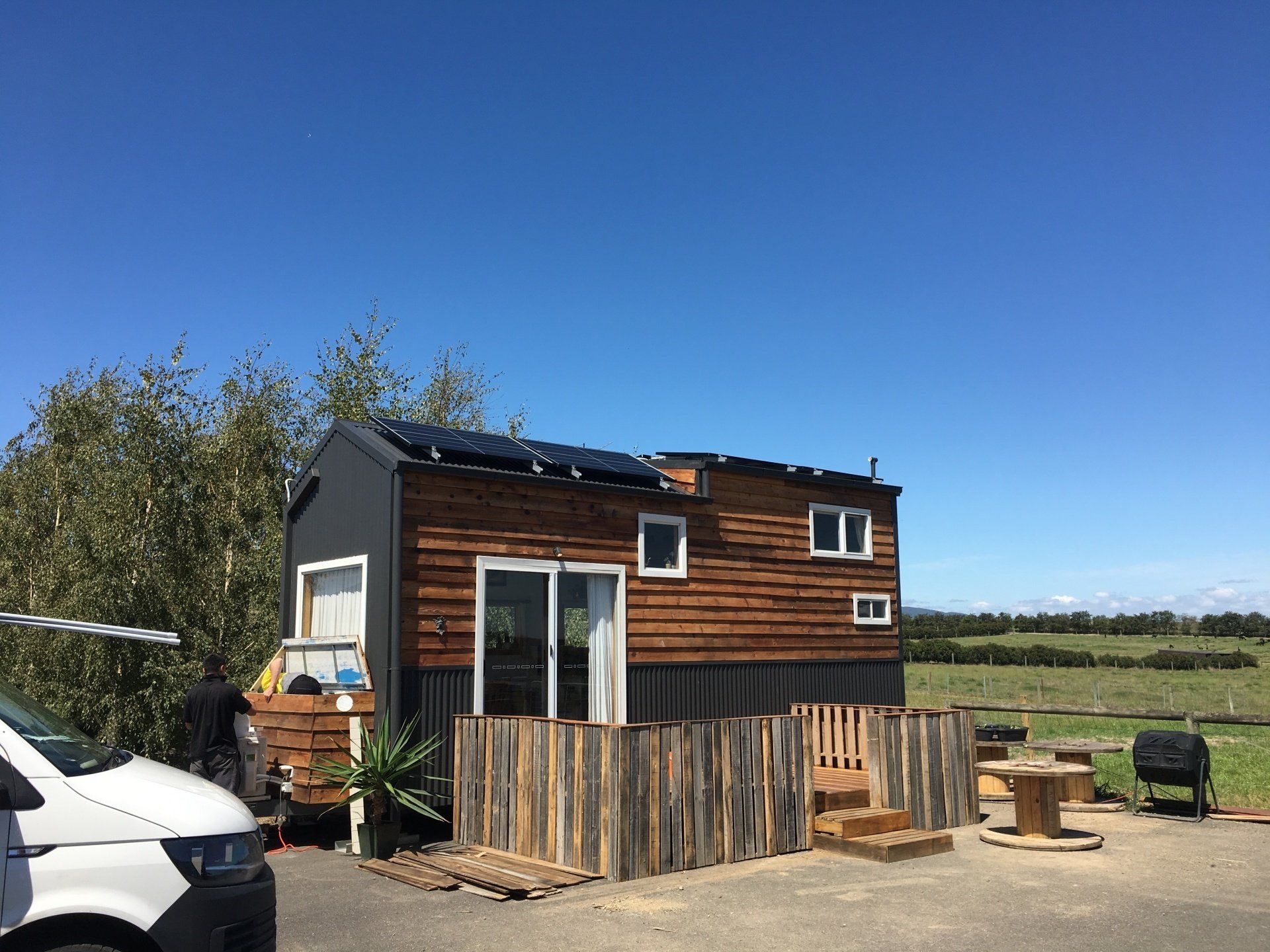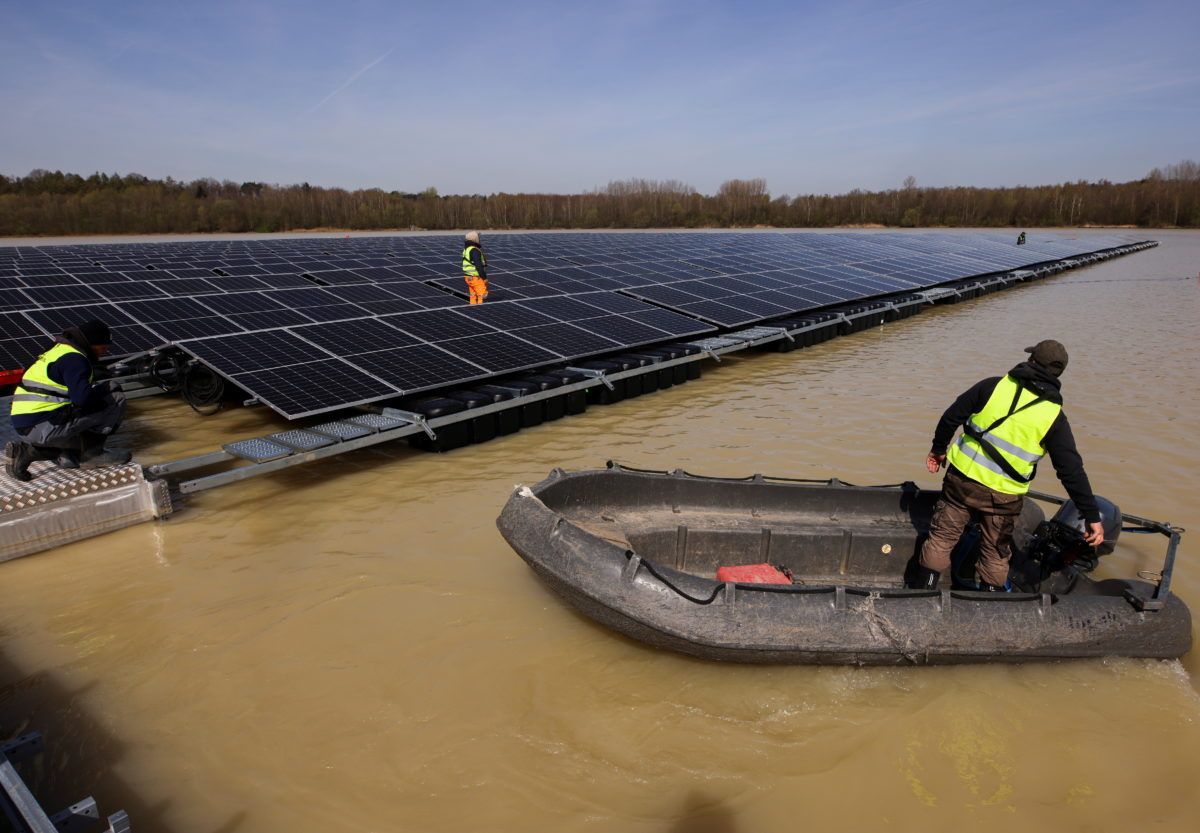Floating Solar Inspections: Ensuring Efficiency and Safety
Floating Solar: The Future of Clean Energy
Floating solar, commonly referred to as "floatovoltaics", is rapidly gaining traction among forward-thinking investors. By harnessing the dual benefits of land conservation and the cooling effects of water, floating solar farms promise increased efficiency. However, to ensure the longevity and optimal performance of installations, routine inspections and maintenance are paramount.
These innovative setups, prevalent in regions like Victoria, are not just eco-friendly solutions; they represent the harmony of engineering with nature. Yet, their maintenance requires a keen eye and specialized expertise. At Gedlec Energy, we champion the cause of floating solar inspection, ensuring both efficiency and safety for business owners and farmers.
Understanding Floating Solar in Depth
Floating solar, often referred to as "floatovoltaics", involves mounting solar panels on buoyant structures, allowing them to float on water bodies. This design offers multiple advantages:
- Land Conservation: No need to allocate vast tracts of land.
- Enhanced Efficiency: The cooling effect of water boosts the solar modules' performance.
- Eco-Friendly: By covering portions of water bodies, they reduce water evaporation and inhibit the growth of harmful algae.
Given their unique nature, floating solar farms, especially in regions like Victoria with its vast water reservoirs, require specialized inspection techniques.
Find out why Victorians are choosing Gedlec Energy.
Safety. Integrity. Performance. Experience.
What Kind of Inspections are Required for Floating Solar Arrays?
1. Aerial Monitoring with Drones: Our autonomous drones, equipped with cutting-edge thermography, offer a bird's-eye view of the entire solar farm. This allows us to identify any irregularities in the solar modules and generate digital twins for meticulous review.
2. Underwater Inspection: The submerged components play a pivotal role in the stability of floating solar farms. Our trained scuba divers and a mechanical engineer inspect these parts, ensuring their structural integrity.
3. Electrical System Analysis: With a team of electrical engineers and electricians, we thoroughly assess the electrical connections, guaranteeing safety and optimal performance.
4. Thermographic Analysis: By detecting heat anomalies, thermography helps identify potential issues in solar panels before they escalate, ensuring the longevity of your floating solar investment.
What Safety Considerations Should be Considered During a Floating Solar Inspection?
Safety is our utmost priority. Here are the measures we emphasize:
- Equipment Safety: All drones, tools, and equipment undergo regular checks to ensure they're in perfect working condition.
- Trained Personnel: Whether it's piloting autonomous drones or diving underwater, our inspection staff undergo rigorous training and are equipped with the necessary safety gear.
- Electrical Safety: Given that water is a conductor, our team takes extra precautions when inspecting the electrical components of the floating solar system.
How Often Should a Floating Solar System be Inspected?
To maintain efficiency and safety, we recommend:
- Quarterly Checks for turbulent water: Regular quarterly maintenance checks to detect and rectify any minor issues before they become significant problems.
- Annual Comprehensive Review: A detailed annual inspection to assess the overall health of the floating solar farm, ensuring consistent performance year after year.
What are the Most Common Problems Identified During a Floating Solar Inspection?
From our extensive experience in regions like Victoria and beyond, common issues include:
- Degradation of Solar Modules: Natural wear and tear can affect the efficiency of solar panels over time.
- Structural Issues: The buoyant structures holding the solar panels might face issues due to water currents or external factors.
- Electrical Discrepancies: Loose connections or corroded wires can impact the energy output.
- Underwater Component Wear: The submerged parts might experience degradation due to constant water exposure.
How often should a floating solar system be inspected?
Professionals in the solar industry, we highly recommend regular inspections of floating solar systems to ensure optimal performance and longevity. The frequency of these inspections may vary depending on several factors.
Generally, it is recommended to inspect a floating solar system at least once a year. This annual inspection allows for a thorough evaluation of the system's components, including the solar panels, floats, mooring system, cables, and connectors. During this inspection, any signs of damage, wear, or malfunction can be identified and addressed promptly.
In addition to the annual inspection, it is also advisable to monitor the system on a more frequent basis, especially during extreme weather conditions such as heavy storms, strong winds, or prolonged periods of high temperatures. These weather events can potentially impact the stability and performance of the floating solar system. Regular monitoring will help detect any issues early on and prevent further damage.
Moreover, advancements in technology have made it possible to implement autonomous drone monitoring for floating solar systems. These drones can be programmed to conduct regular aerial inspections, capturing high-resolution images and data. This autonomous monitoring significantly reduces the need for manual inspections, saving both time and resources.
Ultimately, the goal of inspecting a floating solar system is to ensure maximum energy generation, minimize downtime, and extend the system's lifespan. By adhering to a regular inspection schedule and utilizing innovative monitoring methods, home and business owners can enjoy the long-term benefits of their investment in solar energy.
At Gedlec Energy we blend traditional inspection methods with modern technology, ensuring a comprehensive review. Our team's expertise spans mechanical and electrical engineering, ensuring every facet of your floating solar farm is assessed with precision. With digital twins of your solar modules, our reviews are both exhaustive and precise, allowing us to manually review every detail.
What safety considerations should be taken into account during a floating solar inspection?
Safety considerations play a crucial role in conducting a thorough inspection of floating solar panels. When inspecting these systems, it is imperative to prioritize the well-being of both the inspection staff and the environment. Here are some key safety considerations the we take into account during a floating solar inspection:
1. Personal Protective Equipment (PPE): Ensure that all inspection staff are equipped with the appropriate PPE, including safety helmets, high-visibility clothing, safety glasses, and non-slip footwear. This will protect them from potential hazards, such as falls or electrical accidents.
2. Electrical Safety: Floating solar panels are interconnected with electrical systems, posing potential risks of electric shock. It is vital to work with qualified personnel who are well-trained in electrical safety procedures. Inspectors should be knowledgeable of proper lockout/tagout procedures and be equipped with insulated tools to minimize electrical hazards.
3. Water Safety: Inspecting floating solar panels involves working near or on water bodies. All personnel should be skilled swimmers and have appropriate safety equipment, such as life jackets or personal flotation devices. They should also be knowledgeable about water safety protocols, including rescue procedures, in case of emergencies.
4. Weather Conditions: Weather conditions can significantly impact the safety of personnel during a floating solar inspection. It is crucial to monitor weather forecasts and avoid conducting inspections during severe weather conditions, such as storms or high winds. Additionally, precautions should be taken to prevent heat-related illnesses during hot weather.
5. Equipment Inspection: Before the inspection, ensure thatall equipment, including boats, ladders, and safety harnesses, is in good working condition. Regular inspections and maintenance should be conducted to identify any potential hazards or defects. Equipment should also be properly secured and used according to manufacturer guidelines to minimize risks.
6. Emergency Response Plan: Have a well-defined emergency response plan in place in case of accidents or emergencies during the inspection. This should include protocols for contacting emergency services, evacuating the area, and providing first aid.
7. Environmental Considerations: Floating solar panels are often installed in bodies of water that serve as habitats for aquatic life. It is essential to minimize any negative impacts on the environment during inspections. This can include avoiding contact with sensitive or protected species, using environmentally-friendly cleaning agents, and properly disposing of any waste generated during the inspection.
By considering these safety considerations, we can ensure a thorough and safe inspection of floating solar panels. It is recommended to work with professional inspection teams like Gedlec Energy who have the expertise and experience in conducting inspections in this specific environment.
Floating solar represents a bright future for renewable energy, especially in water-rich regions like Victoria. However, to ensure these installations deliver optimal performance, regular inspections are non-negotiable. Trust Gedlec Energy to safeguard your investment and ensure that your floating solar panels remains both efficient and safe.
Find out why Victorians are choosing Gedlec Energy.
Safety. Integrity. Performance. Experience







